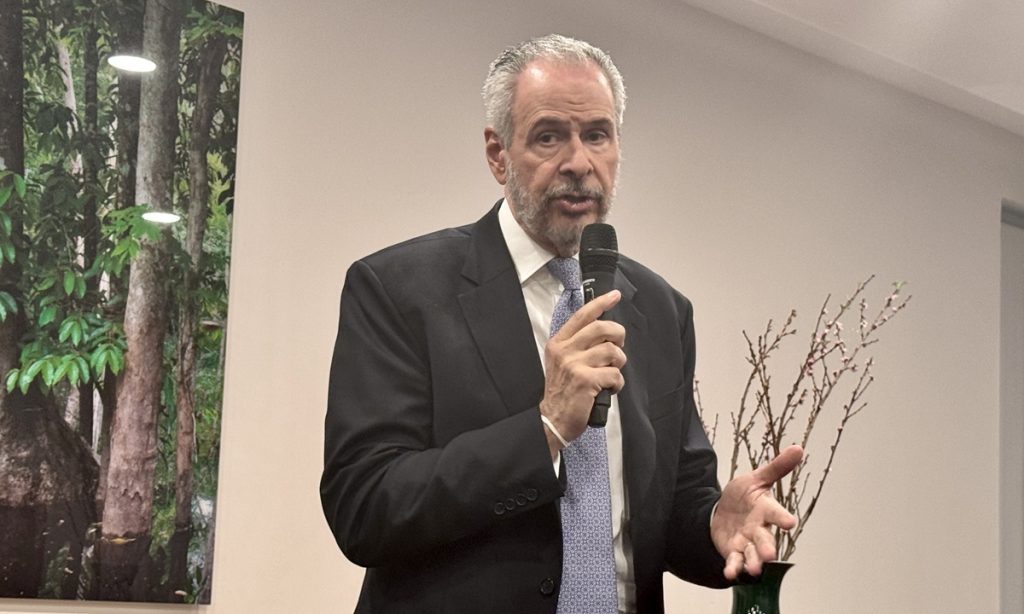COP30 president calls for multilateralism, lauds China-Brazil role in global climate efforts

At a press conference in Beijing on Friday, COP30 President-Designate Andre Correa do Lago presented Brazil’s vision for the upcoming 2025 UN Climate Change Conference (COP30), highlighting multilateral cooperation to tackle global climate challenges.
COP30 will focus on Nationally Determined Contributions (NDCs). “Countries must present their NDCs, and the United Nations will calculate how far we are from the Paris temperature objectives,” Lago, who is visiting China, told the Global Times.
The 2025 UN Climate Change Conference (UNFCCC COP 30) will take place in November 2025 in Belém, Brazil. The year also marks the 10th anniversary of the Paris Agreement.
“Brazil is working hard to make the action agenda dynamic and deliver results. After consultations, like those in China, we’ll clarify expectations for outcomes in the coming months,” he said.
At the Friday press conference, Lago praised China’s efforts in green development as well as China’s role in global climate governance. “China demonstrates that investing in climate action can bring excellent economic results and improve the lives of its population. This example is crucial for other countries.”
He highlighted Brazil and China’s cooperation in energy sectors, saying that Brazil welcomes Chinese investment in this field. “EVs, green technologies, solar panels, and wind turbines are welcomed.”
Lago underscored the vital but underfunded role of climate finance, highlighting the ongoing shortfall in support for developing countries. “We have never reached the amounts of financial support considered necessary for most developing countries to fight climate change more effectively,” he said.
Lago called for a fresh approach to climate finance. “We must look at climate finance dynamically, beyond the traditional view,” he said.
Amid global uncertainty, Lago called for prioritizing climate action through strengthened multilateralism.
“Climate change is something that should not be confused with a specific economic or political crisis; it’s something we have to deal with because it’s there and it’s not going away,” he said, stressing that multilateralism benefits all and is strongly supported by both Brazil and China.
Lago also referenced the upcoming BRICS summit in Brazil. “We are discussing climate issues within BRICS…We believe the global south has many of the most important answers to climate change,” he said.
During a Tuesday meeting with Lago, China’s Minister of Ecology and Environment Huang Runqiu noted that global climate governance currently faces mounting challenges and uncertainties.
Huang emphasized the need to uphold multilateralism, adhere to the principles of “common but differentiated responsibilities,” fairness, and respective capabilities, ensure developed countries fulfill their funding obligations, strengthen global cooperation on climate change, and promote a just transition for developing countries.
Lago expressed hope that China would continue contributing stability and momentum to global climate governance through the multilateral process.